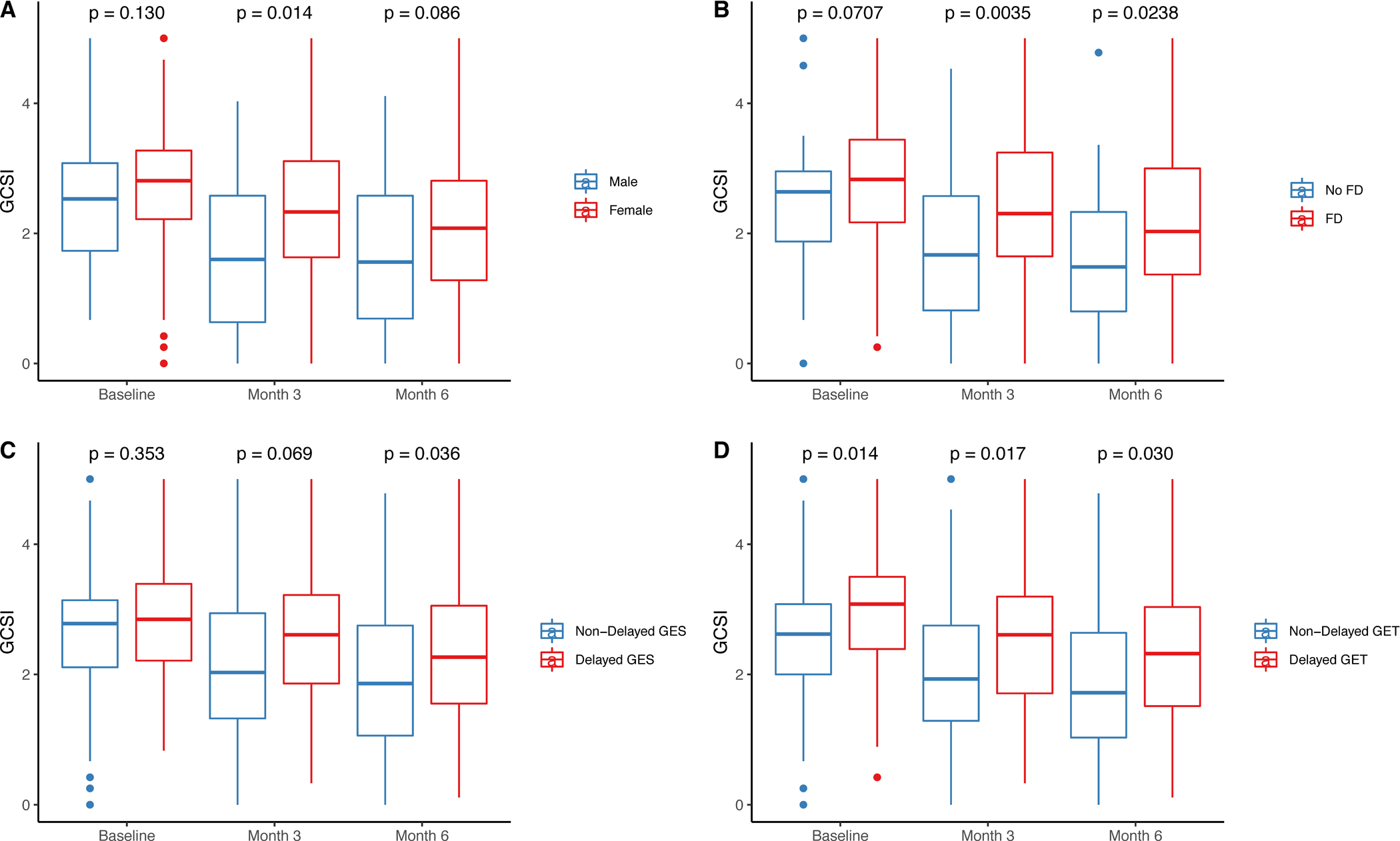Figure 1. Female gender, presence of functional dyspepsia, and delayed gastric emptying are associated with worse overall GCSI scores longitudinally.

(A) Females (red) showed more severe GCSI scores at 3 months (P=.01) and 6 months (P=.09) compared with males (blue). (B) Functional dyspepsia (FD) by Rome III criteria (red) was associated higher GCSI scores at baseline (P=.07), 3 months (P=.004) and 6 months (P=.02) compared with non-FD patients (blue). (C) Patients with delayed gastric emptying by GES (red) have higher GCSI scores at 3 months (P=.07) and 6 months (P=.04) compared with non-delayed GES (blue). (D) Patients with delayed gastric emptying time (GET) by WMC (red) show higher GCSI scores at baseline (P=.01), 3 months (P=.02), and 6 months (P=.03) compared with non-delayed GET (blue).
